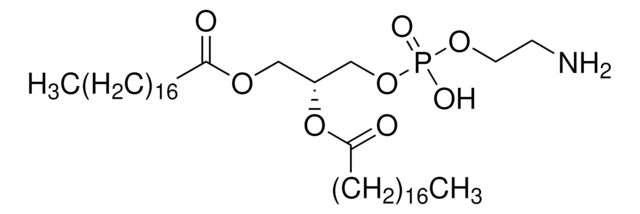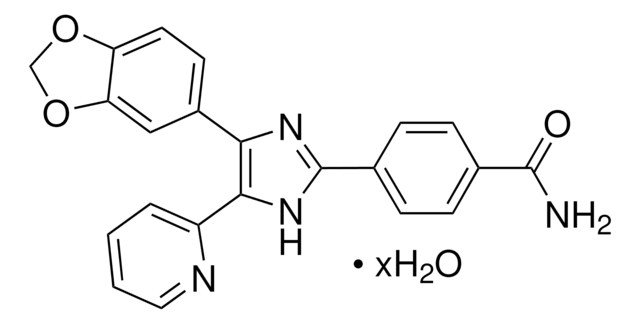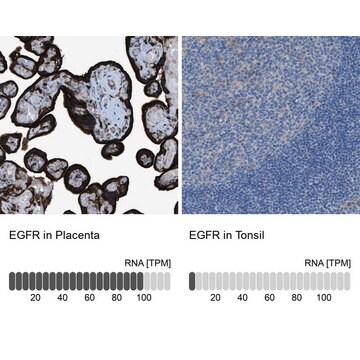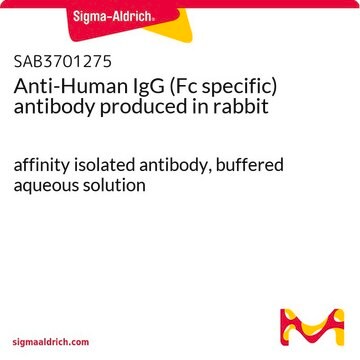추천 제품
생물학적 소스
rabbit
Quality Level
항체 형태
affinity purified immunoglobulin
항체 생산 유형
primary antibodies
클론
polyclonal
종 반응성
human, mouse, rat, bovine
제조업체/상표
Chemicon®
기술
ELISA: suitable
immunocytochemistry: suitable
immunohistochemistry (formalin-fixed, paraffin-embedded sections): suitable
immunoprecipitation (IP): suitable
western blot: suitable
NCBI 수납 번호
UniProt 수납 번호
일반 설명
Current studies suggest the following hypothesis for the role of synapsin: synapsins bind synaptic vesicles to components of the cytoskeleton which prevents them from migrating to the presynaptic membrane and releasing transmitter. During an action potential, synapsins are phosphorylated by Ca2+/calmodulin-dependent protein kinase II, releasing the synaptic vesicles and allowing them to move to the membrane and release their neurotransmitter.
특이성
면역원
애플리케이션
Neuroscience
Synapse & Synaptic Biology
1:200-1:1,000 dilution of a previous lot was used.
Immunocytochemistry:
1:500-1:2,000 dilution of a previous lot was used.
Immunoprecipitation:
1 μg of a previous lot immunoprecipitated all of the synapsin I from a SDS homogenate of 200 μg of rat brain protein.
Note: The above dilutions are with 35S-protein A; with ECL dilutions may need to be considerably higher to obtain specific immunolabeling.
Immunohistochemistry:
1:500-1:2,500
ELISA:
1:2,500-1:10,00
Optimal working dilutions must be determined by the end user.
품질
Synapsin I (AB1543P) representative staining pattern/morphology in rat hippocampal neurons. Tissue was pretreated with Citrate pH 6.0, antigen retrieval. This lot of antibody was diluted to 1:1000, IHC-Select reagents used with HRP-DAB. Immunoreactivity is seen directly associated with terminal end of neuronal cell body.
IHC-Paraffin Staining With Epitope Retrieval:
Rat Hippocampus
표적 설명
결합
물리적 형태
저장 및 안정성
분석 메모
Brain tissue.
기타 정보
법적 정보
면책조항
적합한 제품을 찾을 수 없으신가요?
당사의 제품 선택기 도구.을(를) 시도해 보세요.
Storage Class Code
11 - Combustible Solids
WGK
WGK 1
시험 성적서(COA)
제품의 로트/배치 번호를 입력하여 시험 성적서(COA)을 검색하십시오. 로트 및 배치 번호는 제품 라벨에 있는 ‘로트’ 또는 ‘배치’라는 용어 뒤에서 찾을 수 있습니다.
자사의 과학자팀은 생명 과학, 재료 과학, 화학 합성, 크로마토그래피, 분석 및 기타 많은 영역을 포함한 모든 과학 분야에 경험이 있습니다..
고객지원팀으로 연락바랍니다.







